“Otaku Talk”: Rascals
 |
| Somehow this shot seems familiar, but I can’t place it… |
This is one of those stories where you really have to wonder what was going through the heads of the creative team. Call me a stick-in-the-mud or a killjoy all you want, but I find nothing whimsical or endearing about “Rascals” whatsoever. Instead, I think it’s utterly bonkers and it makes me cringe.
Ron Moore agrees with me:
“When Michael [Piller] bought the premise I thought he was completely insane: An Away Team rematerializes on the transporter as children — with adult minds! I tried again and again to bury this idea, which of course meant that I would get saddled with the inevitable rewrite when the script came in. I just thought it was a ludicrous idea and wanted nothing to do with it. That said, once I got the assignment, the professional writer in me had to commit to the material and do the best with it that I could, so I tried very hard to bring humor and humanity to the proceedings, chiefly through the Guinan/Ro story that I did end up liking in the end. I still cringe when I think of the episode (the Ferengi capture the Enterprise in a couple of broken down Birds of Prey???) but many people have told me how much they like it.”
Moore’s being terribly gracious to his fans here, as all Star Trek creative figures are, but he’s right. This is completely insane. And actually, I’m not even sure he manages to salvage it.
I think this is probably an episode that resonates differently with you depending on how old you are. Because I never remember finding “Rascals” to be unwatchable: Silly, yes, but I enjoyed seeing how Captain Picard was still competent and professional even as a 12-year old and how he devised a plan with Commander Riker on the sly to outwit the Ferengi (and it should give you an idea of calibre of this week’s outing if they’re giving us the *Ferengi* as antagonists. And that they couldn’t even bother to give us stock footage of their *own* ships). If you’re a kid watching this, I suppose you might find something empowering in that. I also had a faint notion that the Guinan/Laren story was supposed to be important character development and that I ought to at least humour that. The rewatch, though? Cringe after cringe.
The child actors…Are not the greatest this show has ever cast. But that’s a cheap shot. More worryingly, the plot is, plainly, inane. What exactly is this episode supposed to be about? To enjoy your youth while you have it? That kids are just as competent as adults, except not really? It doesn’t seem to have a coherent point beyond “let’s do some technobabble bullshit so we can de-age the characters it’d be the most fun to de-age”.…

 The Dark Forest by Cixin Liu
The Dark Forest by Cixin Liu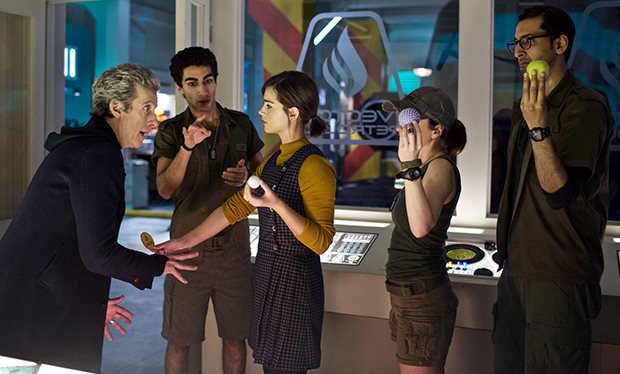 It’s tempting to call it ruthlessly traditional
It’s tempting to call it ruthlessly traditional  Welcome to Shabtober everybody.
Welcome to Shabtober everybody. 
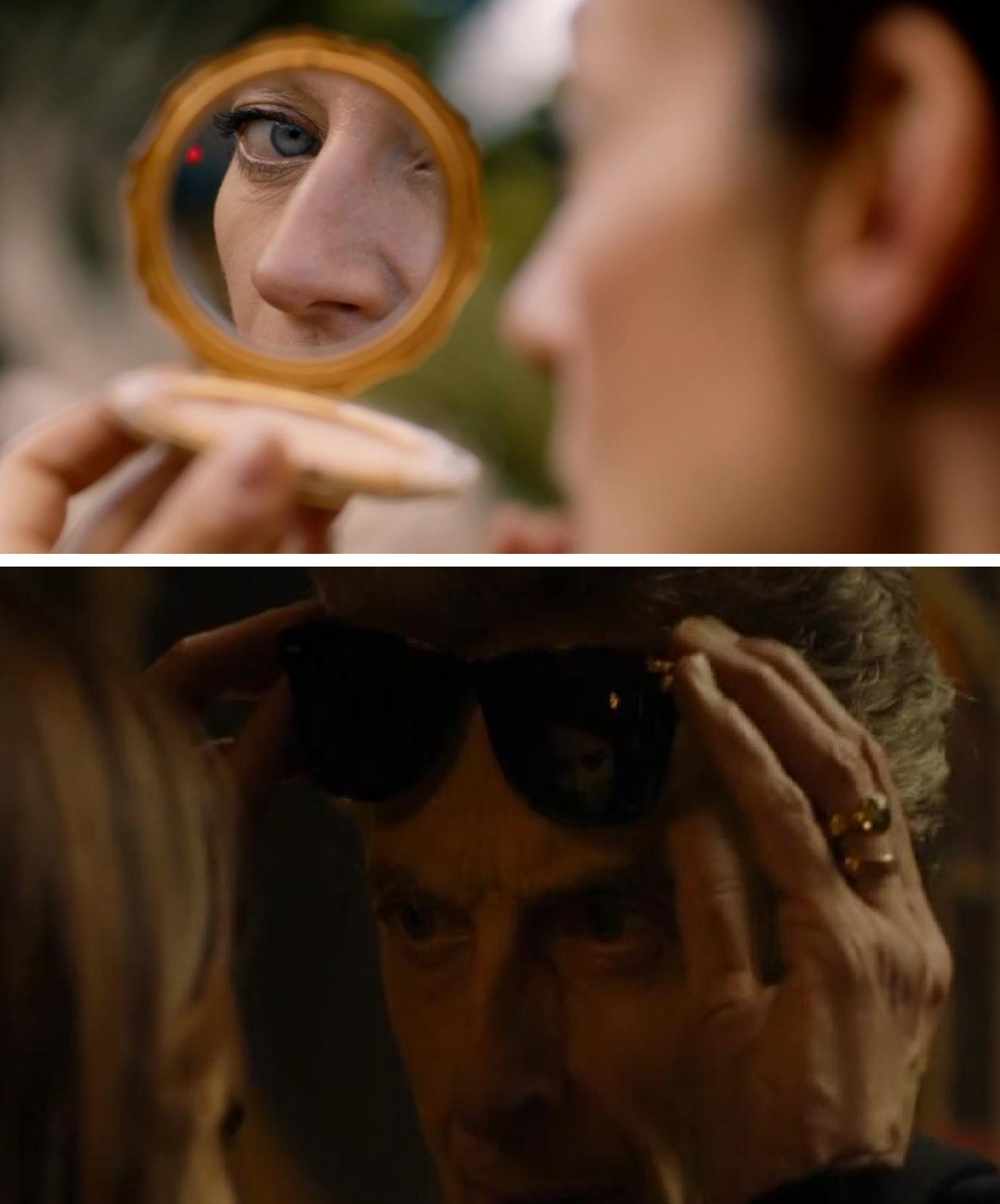 First and foremost, I look at the various mirror-shots within an episode as a skeleton key for unlocking my interpretations. So, for The Magician’s Apprentice we start with shots of Missy reflected in her compact, and Clara reflected in the Doctor’s sunglasses; in The Witch’s Familiar we have both the Doctor and Davros reflected in an eye-shaped window in the Infirmary on Skaro.
First and foremost, I look at the various mirror-shots within an episode as a skeleton key for unlocking my interpretations. So, for The Magician’s Apprentice we start with shots of Missy reflected in her compact, and Clara reflected in the Doctor’s sunglasses; in The Witch’s Familiar we have both the Doctor and Davros reflected in an eye-shaped window in the Infirmary on Skaro.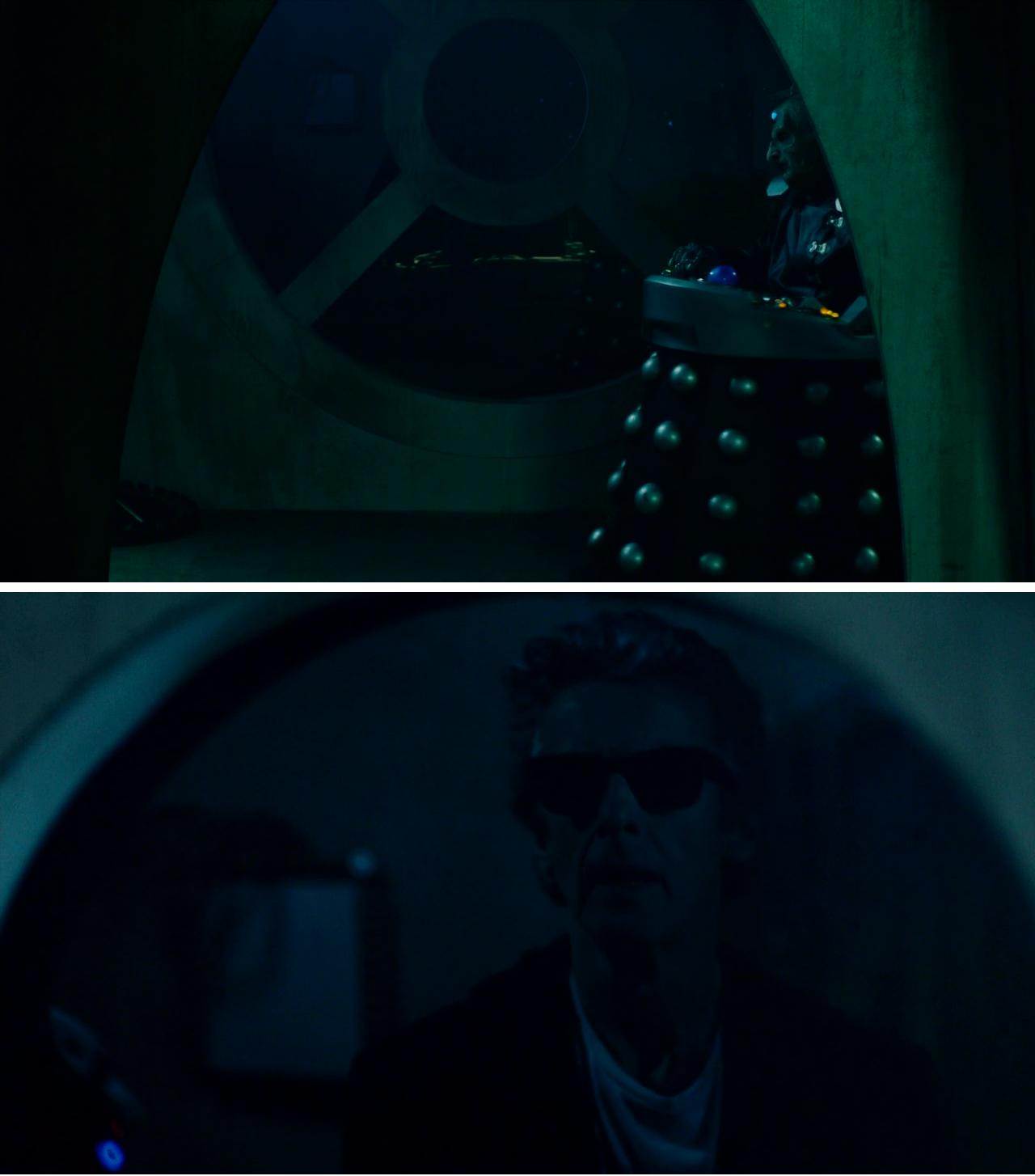 Anyways, the word “apprentice” is rather interesting, given the new monster that appears at the beginning of The Alchemist’s Pupils (my title for the two-parter as a whole). Here we see Hands with Eyes in their palms, which is actually a rather ancient symbolic motif: the Hamsa, primarily from Middle Eastern culture, is considered a talisman that wards off or protects against the Evil Eye. It’s particularly notable for being a matricentric symbol to ensure a healthy and successful childbirth. But in this episode of Doctor Who the monster is demonstrably portrayed as malevolent, sucking a soldier down into the ground.
Anyways, the word “apprentice” is rather interesting, given the new monster that appears at the beginning of The Alchemist’s Pupils (my title for the two-parter as a whole). Here we see Hands with Eyes in their palms, which is actually a rather ancient symbolic motif: the Hamsa, primarily from Middle Eastern culture, is considered a talisman that wards off or protects against the Evil Eye. It’s particularly notable for being a matricentric symbol to ensure a healthy and successful childbirth. But in this episode of Doctor Who the monster is demonstrably portrayed as malevolent, sucking a soldier down into the ground.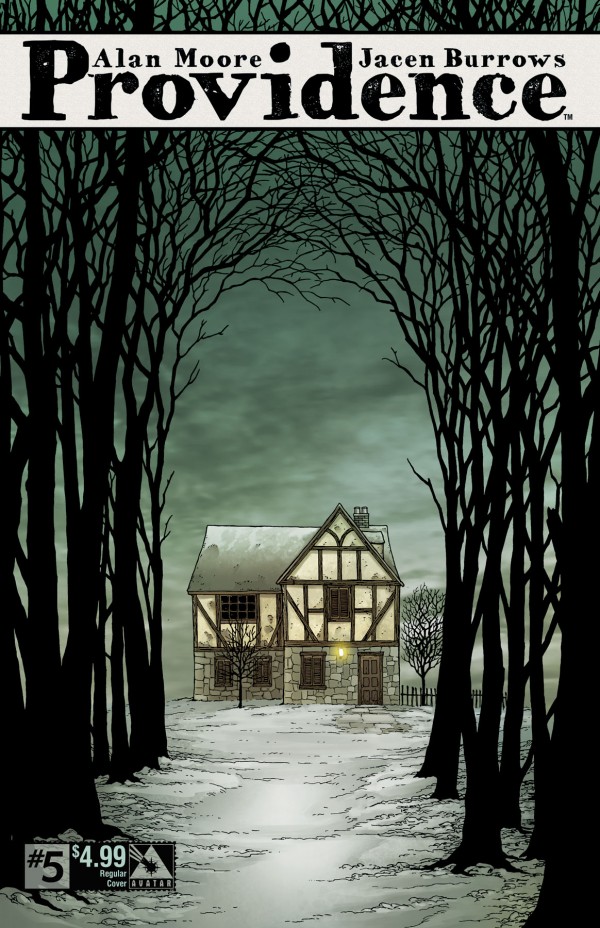 As always, from worst to best of what I bought.
As always, from worst to best of what I bought.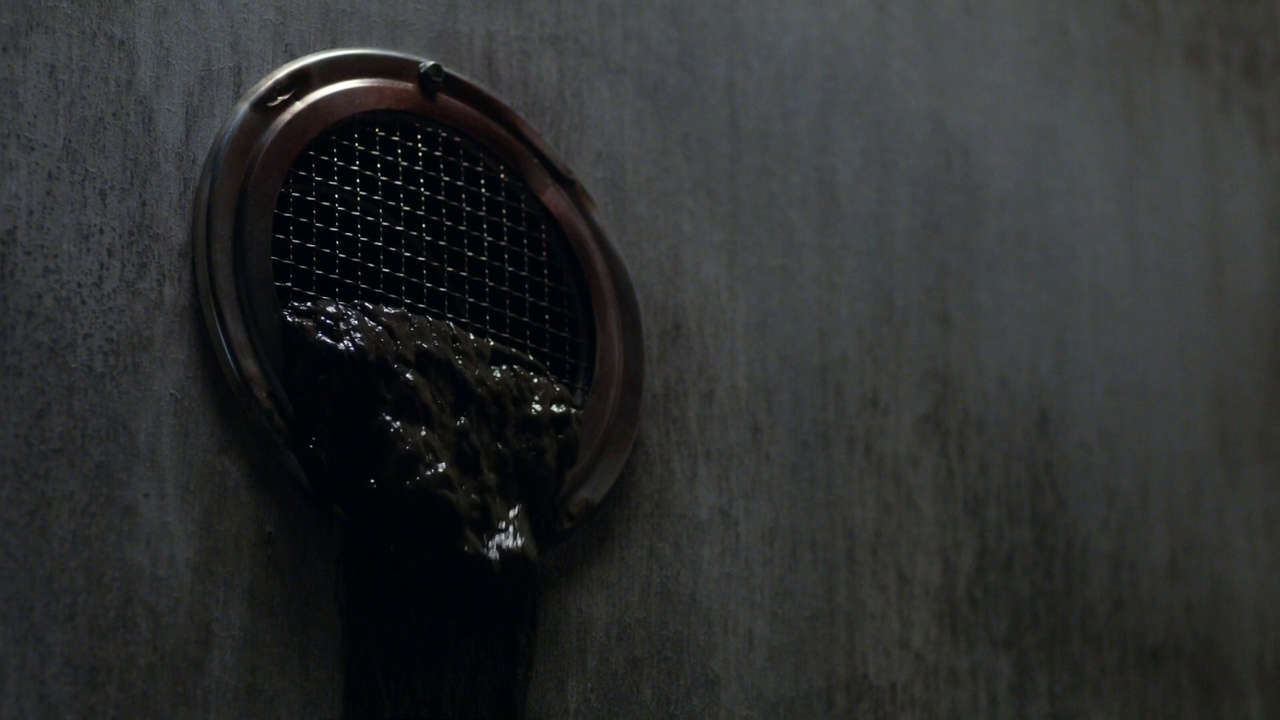 1. Nostradidn’tus
1. Nostradidn’tus